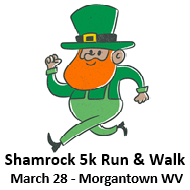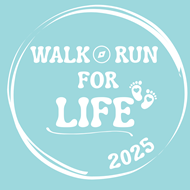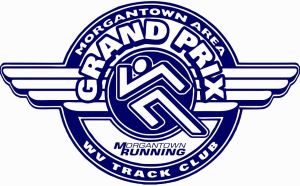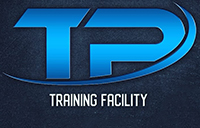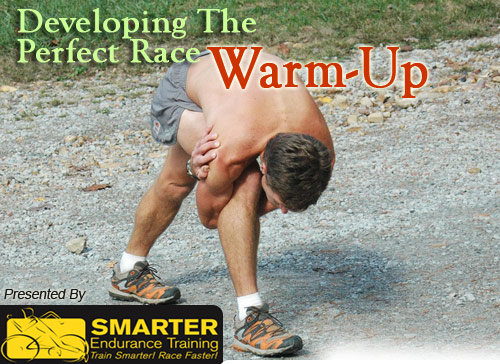
|
Story by Coach, Danny Fink of Smarter Endurance Training
This article presents some specific ideas that you can use when developing the warm-up routine that is best for you.
Your warm-up can vary somewhat depending on the length of the race, and it will vary significantly from a 5k run to a 1/2 Iron triathlon. I will try to provide some guidance for races of various lengths. In this article I will focus on running events. I'll talk about multi-sport races in a later article. Of course the amount of warm-up you do will also depend on your level of training and fitness. If your longest run is 5 miles, you don't want to do a 4 mile warm-up.
With that being said, just doing a warm-up of any kind will put you ahead of over 75 percent of the people at most races, as most do no warm-up at all. Even five minutes of easy jogging is better than nothing.
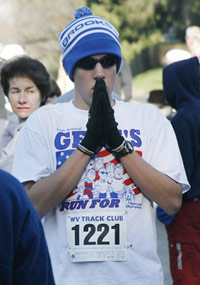
|
This is the warm-up routine that I have developed and have been using for myself and the people I work with for about 20 years. For races of 5k through 15k I do the same warm-up, but I run relatively high mileage during training. For those who run less mileage the warm-up can be shortened, but the basic structure remains the same.
Start the warm-up 30 minutes prior to the start. The first 15 minutes is just easy running, starting at a very easy pace and progressing to normal training pace. This allows the body a chance to gradually warm-up without going anaerobic at any point.
Then stop and change into racing flats (if you use them) and, depending on the temperature, remove most of your warm-up clothing. It's also a good idea to take a few sips of drink at this time.
After changing, run a couple minutes easy to ease your heart rate back up, then run about four x 20 second strides. These should be run at about 5k pace, fast but relaxed. The strides get your breathing and heart rate up even higher while working the legs through a full range of motion, all without developing any lactate. Jog a minute or so easy between each stride. Then about five minutes before the start, run about a minute at 5k pace, this will increase your breathing and heart rate to near race levels, while remaining short enough to prevent excess fatigue from developing.
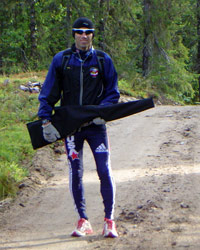
|
If you need to shorten the warm-up, start it closer to the starting time. Once you start warming up, you want to minimize the amount of standing around you do. For example, if based on your training you think 15 minutes is the most you should warm-up, don't start running until 15-20 minutes prior to the start time.
For marathons or 50k's most people don't need to warm-up at all. For those few who have sufficient mileage base and who are trying to run for a specific time, running 5 to 10 minutes prior to the start and maybe one or two strides is all that is needed.
The key is to develop a warm-up routine in training that you will use for your speed workout as well as your races. Try different warm-up routines. Find out just how much you need to do to be thoroughly prepared to race. Then do the same thing every time.
Do you have questions?
Visit online at www.smarterendurancetraining.com or if you have any questions or comments e-mail Danny at coach@smarterendurancetraining.com.
About Danny Fink: He has over 28 years experience as an endurance athlete and coach and has competed at the Pro/Elite level in four different endurance sports. Danny was a member of the Summer Biathlon Elite National Team for four years and has represented the USA a total of six times in two different sports (Summer Biathlon & Duathlon) at the Pro/Elite World Championships. He also won the Czech International Biathlon Cup in 2000 and earned the Bronze medal at the 1998 Slovak Cup Biathlon. He is a former Professional Duathlon National Champion and RRCA 5k Masters National Champion. Most recently he was the overall winner at the 2006 Richard S. Caliguiri City of Pittsburgh Great Race 5k with 2200 finishers. He is a USA Cycling Certified Coach and a Certified CompuTrainer Coach.

